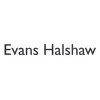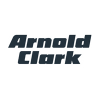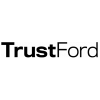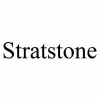
Are Personal Loans Now the Best Choice for Used Car Buyers?
I spent the best part of a decade in the motor industry advising buyers that personal loans were not at all the best way to fund the purchase of a new or used car. There were genuine reasons for me giving that advice, and no, it wasn't just because I wanted the customers to use our finance instead. However, at least as far as used cars are concerned, current circumstances might cause me to change that advice if I was asked for it today.
Definition of a personal loan
If you're not used to dealing with different types of finance agreements a personal loan might appear to be exactly the same as a hire purchase finance agreement, but it isn't. Both are a simple loan of an agreed amount that is repaid over a specified term with regular monthly payments. When the loan is paid off the car is yours and there are no balloon payments or guaranteed future values (GFVs) to be concerned about.
The difference is the fact a hire purchase (HP) agreement is secured on the car while a personal loan is unsecured. As far as the lender is concerned, you could be buying a car, using the money to pay for a holiday or you might be going down to the bookmaker with it. There are benefits and protections with a hire purchase agreement you don’t get with a personal loan, which is part of the reason why personal loans are usually cheaper.
What's changed?
Things started to change with the financial crisis in 2007/2008 when interest rates were slashed to the bone for what has turned out to be a record period, and coronavirus and the ensuing financial armageddon caused by lockdowns means those record-low rates are here to stay for the foreseeable future.
Cheap hire purchase deals are available, but personal loan rates are often even lower. For example, I've just done a quick search online and immediately found a £7,500 personal loan from a well-known lender over 60 months at a rate of 3.5% APR. Over the five years, you would be paying just £675 in interest.
What about low-rate HP?
There are plenty of low-rate HP deals around too, and if you were buying a new car I'd still probably prefer one of these over a personal loan as they are often subsidised by manufacturers and you can still negotiate a deal on the price of the new car. Used cars are different though.
To get a hire purchase deal as cheap as the example above there's a very strong chance the dealership will have had to subsidise the finance to get to that sort of rate, and that money comes out of the profit they have in the car. Used car finance rates will still be double the rate in my example or more unless they are subsidised by the dealer. If the dealer has to pay £500 to get to that 3.5% APR rate on a used car, that's £500 they won't have to discount the price of the car for you.
If you get that 3.5% rate with a personal loan you will then be able to negotiate the asking price of the car fully aware that the dealer has their full margin to play with.
What about interest-free HP?
Interest-free finance deals are very rarely really 'free,' especially with used cars. For the same reasons mentioned already, someone has to subsidise a finance agreement to get the rate to 0% as finance companies still don’t lend money for free. Manufacturers may subsidise 0% deals for new cars, but dealers have to do it for used cars and that expense means they'll have little or no margin left to reduce the asking price of the car.
I still maintain that leasing is still the best way to fund a new car, although PCP rates are now getting so low they can be just as cheap in some cases. When it comes to used cars though, a cheap personal loan is probably the way to go at the moment. A PCP deal on a used car may still offer lower monthly payments, but I'm finding the difference is so small that the lack of a big lump sum owing at the end still makes a stronger case at the moment for a cheap personal loan.













